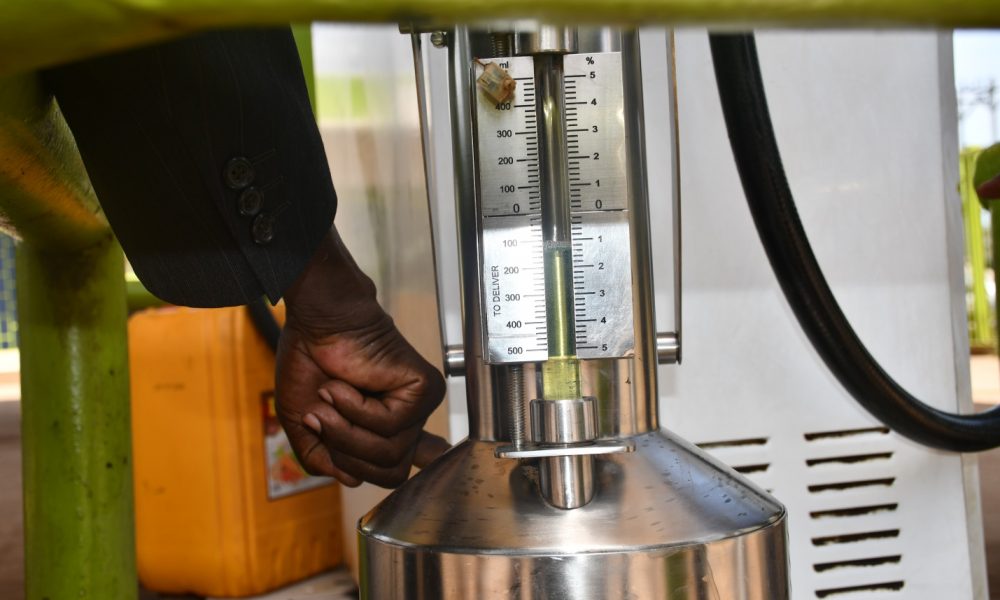By William Madouk
South Sudan National Bureau of Standards (SSNBS) has embarked on enforcing standards on goods in the markets around Juba town.
The quality standards body started a sensitization campaign to effect standards.
“Yesterday, I started a spot visit carried out on two fuel stations, a butcher shop and an electronic shop, where the checking was done on their products,” Acting director for metrology, John Odongi, said.
The three-day campaign that kicked off on Wednesday was to ensure that weights and measurements were precise to avoid any cheating by traders on customers with quality products.
According to Odongi, the bureau now has the standard equipment that can help protect the consumers.
“We have all this equipment in place. As you can see, we have new equipment like a density meter that helps us test the quality range of the fuel,” he explained.
Yesterday, a spot check was carried out at Trinity Energy and Siinaay petrol stations, and both fuel stations met the quality and quantity standards.
According to standards, the quality range of diesel is 0.850 g/ml and that of petrol is 0.750 g/ml. For instance, the density meter is dipped into fuel fluid to determine whether it’s of good quality or not.
“Fuel that was imported here was mixed with water, but we now have a standard that can now test the fuel that has combined different items in each. And this equipment is now helping us to identify whether there is water,” he continued.
When a check is done for a petrol station, a one-year certificate is given to show that it conforms to standard requirements.
Also, a bulb was tested at one of the electronic shops at Suk-Libya in Munuki using lighting testing equipment to identify if the lamp was original or fake.
“We have new equipment here for testing the appliances of the bulb, which is called lightening equipment for testing all the appliances for lamps,” Odongi noted.
“Most of our lamps are bought from the market and imported; they are all fake. But now, it will be our time to make sure that all the imports of these light appliances are tested correctly so that they are used for our people in the country,” he stressed.
“When we see the power load, according to what they wrote here, they say it’s 13. So here, the input is 10.2 watts. This input has been divided into two parts: there is a power load, which is 9 watts, and there is radiated power, which is 1.2 watts,” said SSNBS experts.
“The power efficiency is 5 micromoles per second. So, the power efficiency is 11.5 percent, and the photon efficiency is 0.49. So, now we will take this, and then we will compare it to our standard. Does it comply with the standard or not? If it complies with our standards, we approve it. If it doesn’t comply with the standard, we seize it,” he explained while doing practical lamp testing.
SSNBS experts said citizens have a responsibility to report any products given to them with less weight for action from the meteorology department.
“In order for the butchers to work properly, the citizens also, whenever they find less weight, are to come to us so that they are sent to court.”
Mr. Soka, a staff member of the meteorology department, said, “Today (Wednesday) is our first day of standard awareness.
“We need to tell our citizens all over South Sudan that what we are doing within the country is meeting the requirement. And we are collaborating with the traders,” he noted.




